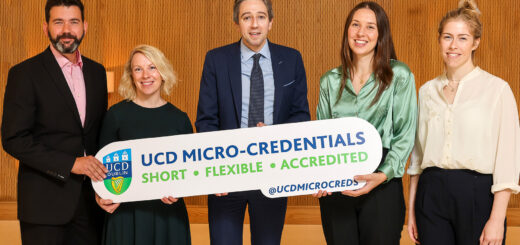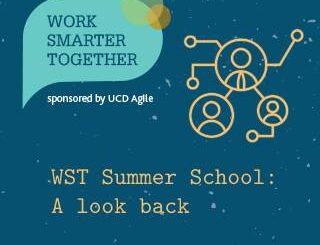UCD Research Managers & Administrators Network
As part of the Spotlight Series, Emma Mescall contacted a number of the existing Communities of Practice already established here at UCD about how they came together, their function, the objectives and how the changes brough on by Covid affected them.
This profile was provided by John Wyatt, Project Manager, UCD LEAP on behalf of URMAN COP
What is the role of URMAN?
The main role of the UCD Research Managers & Administrators Network (URMAN) is to provide an avenue for knowledge-sharing for research managers and administrators, while also being an additional pathway for participation in broader UCD Research events.
How did the URMAN community of practice come about?
By virtue of the diverse research taking place in UCD, the research management & administration space in UCD has a challenging amount of variety compared to core-funded activity (which generally has more clear delineation between Academic & Support roles, standardised reporting structures, etc.).
Career progression (and even understanding your current role!) can also be challenging given the different needs of different research projects, so staff moving into the research management & administration space may require guidance and support as they move into these roles from elsewhere within or outside the University. The URMAN COP provides an avenue for both horizontal knowledge-sharing and more traditional mentor-mentee conversations to take place, and is now one of the oldest COPs in UCD having been founded in 2013.
How is URMAN run and maintained?
URMAN has an Advisory Group which helps collate feedback from members and coordinate COP activity. URMAN also has four working groups which each support members in defined areas:
- Membership & Communications
- Events
- Career Development
- AIREN
In addition to these working groups, URMAN publishes an annual report each year to UCD Research (who support the URMAN COP) and ensures URMAN and UCD Research coordinate activity and staff initiatives in this area.
What have been the challenges since Covid for the group?
Finding ways to connect organically / informally has been a major challenge since Covid. Remote working was a great opportunity for us to expand the scope of presenters and attendees for events (we had one with the US National Science Foundation last year for example). But it can be a challenge to keep online events from being too CPD / activity focused as opposed to more collegial in nature. At the same time, we had a very successful face to face AGM in May (20+ people) but was only attended by around 20% of our membership at most. We need to find a way to get the best of both worlds.
How often does the group meet and how also?
URMAN is a large enough Community of Practice (150+ members) so it is uncommon that the majority of members will attend any specific activity. We endeavour to hold events for the community on a roughly monthly basis during term time. We also have additional events for a subset of the COP such as Welcome Meetings for new joiners and URMAN Working / Advisory Group meetings to help steer group activities.
How does the group work since going hybrid – if this is the case? What’s the difference been since covid on this?
This is something we haven’t quite figured out yet. Although UCD has been proactive in making more room capacity available for hybrid meetings, it isn’t something we have vast experience with as a group in terms of holding hybrid meetings in a way that can satisfy both online and face to face attendees equally. One possibility for the upcoming year is having monthly URMAN member meetings and alternating whether they are face to face and online, and member engagement can be augmented by also ensuring additional ad-hoc events during the year are hybrid to be as inclusive as possible.
What is the vision for the future of URMAN?
URMAN is hoping to continue growing in line with the broader increase in institutional research activity in order to help an increasing number of staff working in the Research Management & Administration space. For example, this past year URMAN held targeted seminars for staff in areas such as Open Science linking with the UCD Library and Job Families with UCD HR which helped new members gain further understanding of existing UCD supports.
URMAN is hoping to build on the success of these events and interlink further with related UCD initiatives (such as Learning and Development Courses) and other communities of practice in order to have more joint activity with broader scope, and help fill any gaps identified by members in existing support structures.
Here are links to URMAN pages if you need them as well:
Website: https://urman.ucd.ie/
Linkedin: https://www.linkedin.com/groups/8536758/
Google Currents: https://currents.google.com/u/1/communities/113210682001389195017




